MercoPress. South Atlantic News Agency
Tag: Rio do Janeiro
-
Tuesday, January 21st 2014 - 13:14 UTC
Lightning chips a finger from Christ the Redeemer right hand

Christ the Redeemer, the iconic statue with its arms extended overlooking Rio de Janeiro in Brazil was struck by lightning damaging the statue's right hand thumb, making it lose one finger, according to officials from the Archdiocese of Rio, which manages the statue.
-
Friday, November 29th 2013 - 07:17 UTC
Youth gangs raids in Rio beaches are back challenging police; US consulate alert
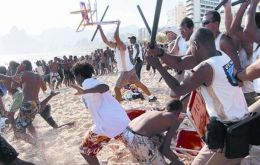
A truck with fourteen cameras with a 360 degree angle and a range of eight kilometers plus a fourfold increase in police numbers has been displayed along Rio do Janeiro most iconic beaches following an outbreak of 'arrastraos' or dragnets in which tens of teenagers stampede on to beachgoers to steal whatever they can get hold off.
-
Monday, November 11th 2013 - 18:48 UTC
“Big Brother” is watching you in Rio do Janeiro: over 700.000 cameras in the city

Rio do Janeiro that will host the 2014 World Cup and the Olympic Games in 2016 is watched by an estimated 700.000 cameras from private security systems, revealed on Sunday O'Globo one of Brazil's main media conglomerates. According to a report from the Electronic Security Systems companies, the market expands 10% annually and there is one camera for every nine 'cariocas'.
-
Thursday, November 7th 2013 - 21:51 UTC
Fears of 2014 World Cup disruptions resurface as major football conference is called off by Rio authorities

Fears about disruption to next year's World Cup have been raised after the key global football conference Soccerex was cancelled for disputed reasons. Soccerex organizers said Rio de Janeiro's state government had called off next month's event due to concerns about “ongoing civil unrest” in Brazil.
-
Friday, September 20th 2013 - 07:30 UTC
Brazil with no labs to handle drug testing for the 2014 World Cup

With one lab suspended and its replacement unfinished, Brazil won't be able to handle drug testing for the 2014 World Cup alone and is looking overseas for help. The executive director of the country's anti-doping authority said the new lab in Rio de Janeiro should be running a year before the 2016 Olympics. But, Marco Aurelio Klein added, the lab won't be ready for the World Cup next June and July.
-
Wednesday, July 24th 2013 - 07:19 UTC
Mass with 400.000 Catholics in Copacabana beach marks opening of World Youth Day
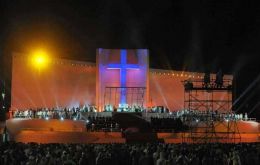
Around 400,000 Roman Catholics have joined a Tuesday evening ceremony on Copacabana Beach in Rio de Janeiro to mark the opening of World Youth Day. The highlight of the festival will be a visit on Thursday by Pope Francis.
-
Tuesday, July 23rd 2013 - 07:48 UTC
Violent protests against Rio do Janeiro governor following Pope’s reception
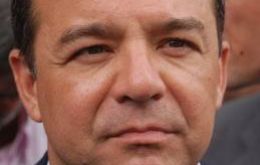
Rio de Janeiro was the stage for violent protests centred at Palacio Guanabara where earlier in the day Pope Francis had been received by Brazilian president Dilma Rousseff. The incidents occurred Monday night during a demonstration against Rio state governor Sergio Cabral which convened an estimated 1.500 people according to the police.
-
Friday, July 19th 2013 - 06:29 UTC
Pope Francis wants direct contact with the crowds when he visits Brazil next week
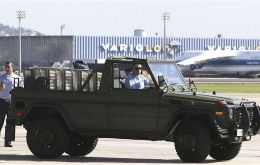
Pope Francis will not use bullet-proof ‘Pope-mobiles’ on his visit to Brazil next week to allow him more direct contact with crowds despite the security risks, according to a Vatican release.
-
Friday, June 21st 2013 - 06:16 UTC
Brazilian political system from surprise to shock as there seems no end to protests

Brazil's biggest protests in two decades intensified on Thursday despite government concessions meant to quell the demonstrations, as over 300,000 people took to the streets of Sao Paulo, Rio de Janeiro, Brasilia and tens of thousands more flooded an estimated one hundred cities.
-
Thursday, June 20th 2013 - 02:16 UTC
Sao Paulo and Rio roll back bus fares but protests keep spreading to other cities
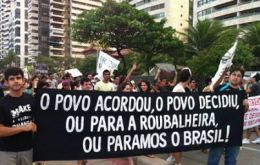
Brazil's two biggest cities agreed to revoke an increase in public transportation fares that set off demonstrations that have grown into nationwide protests against poor public services, inflation, corruption and lavish spending in stadiums to host global events.
